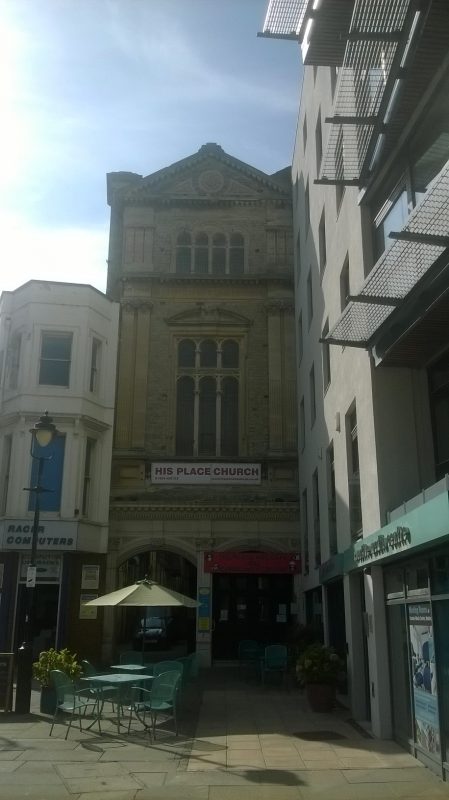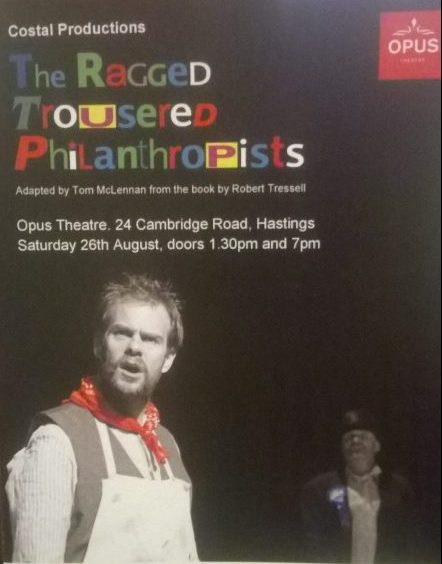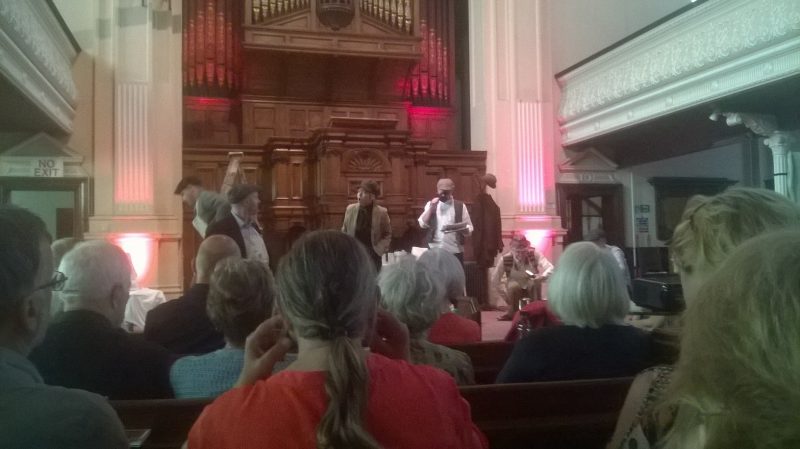
On Saturday, August 26, Opus Theatre, a new arts venue in The Place Church in Hastings, presented a play adapted by Tom McLennan, from a book by Robert Tressell called The Ragged Trousered Philanthropist. The venue in the historic building has also a community centre with a cafe and hosts exhibitions.
Opus Theatre can be hired for concerts, opera, theatre, dance and literary events. Polo Piatti who is the director hopes it will be a creative hub in Hastings town centre with its diverse possibilities and great arts for everyone (www.opustheatre.co.uk).
The edited version of the book was published in 1914 and set in Hastings and St Leonards where Tressell lived from 1870 to 1911, describing the misery of ordinary people. He was a painter, sign-writer, socialist and his book was probably the most influential working-class novel ever written. In the programme notes, Hastings author Steve Peak writes that he believes Tressell’s writing helped “create the welfare state in 1948 and radicalised the post-war labour movement”.

By 1906, still living in Hastings under appalling and deteriorating poor conditions, Tressell’s health was badly affected by tuberculosis which forced him to spend much time indoors, and it was at this time he collected his material for the book. He finished it in 1910 but found no publisher. He decided to move to Liverpool in order to emigrate to Canada but died in August of that year. In the same leaflet as above Hastings writer Ron Bill writer tells us that Tressell wrote on the original title page of The Ragged Trousered Philanthropist: “Being a story of 12 months in Hell told by one of the damned.” He was buried in a pauper’s grave.

It was more or less a full audience, 100 plus, at this afternoon performance. The content of the book is dense and not easily translated for the stage but the actors valiantly tried to get across the sense of how most people struggled at the time being, as the main character, Tressel himself, sees it and tells his workmates, the slaves of the rich. The book is well worth reading and has been reprinted many times since in its original version.
Photos: Heidi Foster



